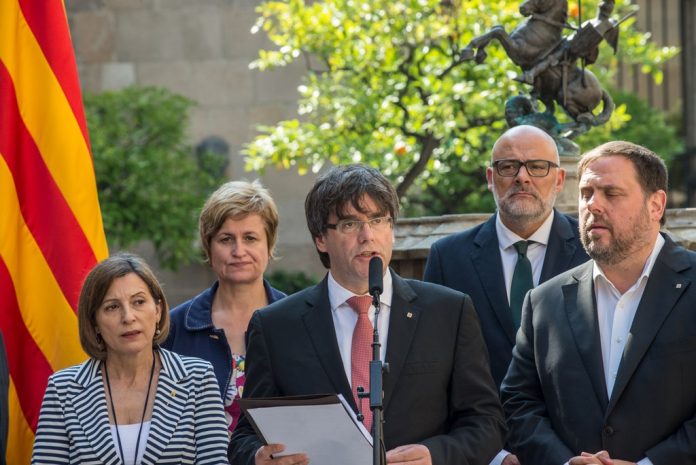The only candidate officially proposed to run for the Catalan regional presidency is Carles Puigdemont – the self-exiled former Catalan leader who is wanted on sedition charges.
The speaker of the Catalan parliament, Roger Torrent, told reporters in Barcelona on January 22 that Puigdemont, who leads the Together for Catalonia party, received the most backing from lawmakers during a round of party consultations last week.
As reported by the Spanish news agency EFE, Torrent’s decision is likely to anger the Spanish government and pro-union Catalan parties.
“I am aware of the personal and judicial situation of Puigdemont and of the warning that weighs on him. I am also aware of his absolute legitimacy to be a candidate,” said Torrent. “My duty as speaker is to do all that I can to ensure that MPs can express themselves freely.”
Puigdemont was deposed by Spain’s conservative government on October 27 when it triggered Article 155 of the Constitution to rescind a unilateral declaration in Catalonia. He has been in Brussels ever since, together with four ex-ministers, to avoid a Spanish arrest warrant.
Meanwhile, Spain’s Supreme Court dismissed a request by Spanish prosecutors to reinstate a European arrest warrant for the ousted Catalan leader as he travelled to Denmark to participate in a debate organised by the University of Copenhagen’s Political Science department.
Sources from Spain’s state prosecutor’s office said Pablo Llarena, the Supreme Court judge leading the sedition investigation against Puigdemont, was officially requested to reinstate a European arrest warrant in a bid to bring him back to Spain to face charges.
According to EFE, a previous European arrest warrant was retracted by Llarena on December 5.
In a statement, Llarena said he found the request reasonable, but that ultimately there were nuances in the case that meant that such a warrant should be postponed for now.
In related news, the Associated Press (AP) quoted Spain’s foreign minister, Alfonso Dastis, as saying: “Mr. Puigdemont is subject to a process in Spain. Outside, for the moment, movements are free within the European Union, but we’ll see.”

